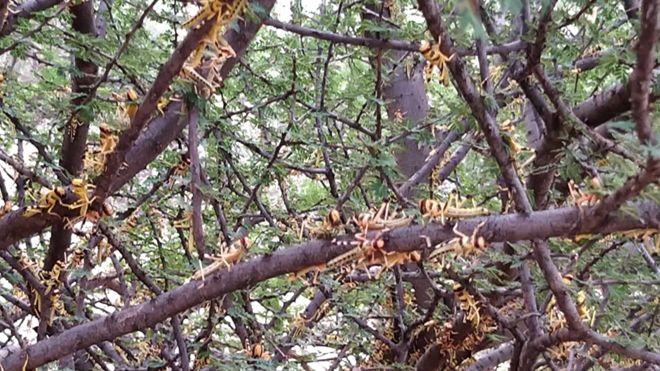Locusts have invaded Somalia with local officials saying it is the worst to hit the country in 25 years.
Instead of it becoming a crisis, citizens are turning the locusts into delicious meals to fight their invasion.
Locusts devastate crops and cause major agricultural damage leading to famine and starvation.
They occur in many parts of the world, but today locusts are most destructive in sustenance farming regions of Africa.
According to local media reports residents of Adado town, in central Somalia are fighting their invasion by frying the locusts and eating them with rice and pasta.
One man told local TV channel Universal Somali TV that the insects have medicinal properties will help reduce his back pain and blood pressure.
The UN’s Food and Agriculture Organisation said the infestation, affecting parts of Somalia and Ethiopia, has destroyed crops and threatens food security in the region.
For Instance in Ethiopia, the FAO estimated that the insects were eating 1.8 million tonnes of vegetation a day across 350 sq km of the country.
The FAO warned last month that if additional control measures fail then the locusts “could continue moving within Ethiopia and invade” north-eastern Kenya, parts of Eritrea, and Sudan’s southern coast.
Source: Africafeeds.com



